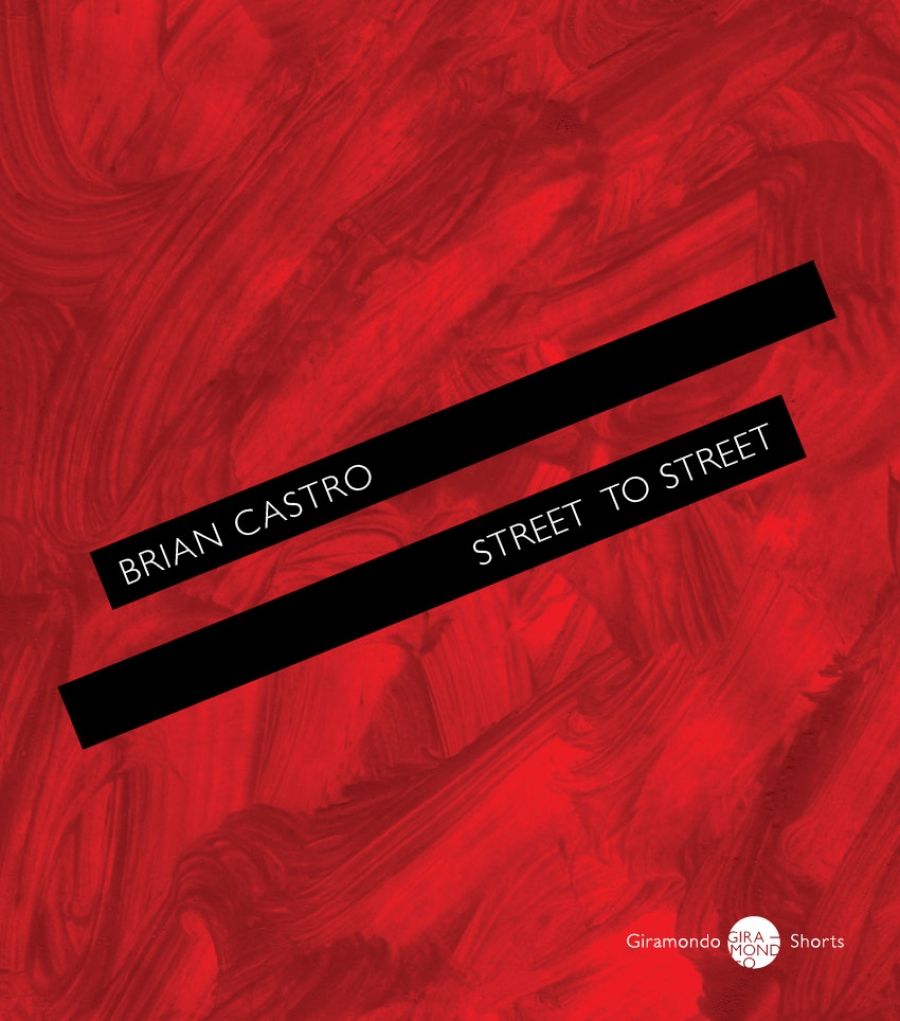
- Free Article: No
- Contents Category: Fiction
- Review Article: Yes
- Online Only: No
- Custom Highlight Text:
At the age of fourteen, Brendan Costa, not Brian Castro, visits a fortune teller. The Witch predicts a fortunate life, though one afflicted by a lack of awareness that may lead to loss of control and possible disaster. Castro is warning the reader to pay attention or lose the plot.
- Book 1 Title: Street to Street
- Book 1 Biblio: Giramondo, $24.95 pb, 149 pp, 9781920882952
- Non-review Thumbnail:

The Witch tells Costa to make a wish. He wants to make music; he wants to be black and filled with rhythm. Failing to be black, he opts for poetry. But his father mocks that particular vocation, so Costa wishes instead to be a teacher of poetry, a prosaic compromise. Fifty years later, Costa, failed poet and academic, is suicidal. He still believes in poetry, but his career is shambolic; his biography of Christopher Brennan, the alcoholic Irish-Australian poet of the early twentieth century, is still unfinished; his marriage is in ruins. He dreams of a new life with the beautiful and passionate Saskia, whom he met in Amsterdam.
‘Imagination is like masturbation,’ says Costa’s father on his deathbed. He believes imagination is a weakness, a blight, a prevarication, a turning away from reality. By his definition poets, including his son, are a waste of time and space. Castro’s battle cry against the philistines is less a call to arms than the sly hit and run of guerrilla tactics. He takes a dig at academia and the corporate world of stakeholders and work performance evaluation reports. The life of the mind is not well regarded in Chips Rafferty country. Here, what is prized above all is the serious adult business of sport and money or, at best, stoic endurance leavened by a good-natured yarn. Castro’s solution is to disguise his modernist experiment as a disingenuous tale in the tradition of the bush philosopher. He even gives us a quintessentially Australian anti-hero, and possible alter ego, in Costa: awkward, self-deprecating to the point of self-annihilation, and yet arrogant about his failures, like his alter ego Christopher Brennan, a man of endless potential, endlessly poised on the cusp of achievement; a man who never quite gets there. The sensitive soul endures torture of an exquisite kind. To read the thoughts of two such characters, so out of step with the prevailing norm, is exquisitely funny in Castro’s hands.
Brennan thought that intellect mattered, but it did not save him. In lines made more poignant by the contemplation of present realities, not least of all Castro’s own position as a senior academic and critically acclaimed author, Castro describes Brennan’s, Costa’s, and perhaps his own precarious state:
He covered up this salvation through erudition, which he knew, deep down, was unintelligible. What he thought, he felt. He drank shapes of feelings. Sniffed out sensibility and was unable, for the most part, to find it sustainable. But he had the great gift of deceiving himself.
I suspect that Castro’s great gift is being able to deceive others, but not himself.
Costa trawls ‘for life on long lines of words’, but finds that putting words into action leads to failure, and that contemporary reality is antithetical to the writing of poetry. Costa’s shame derives from working on words no one wants to read in a country addicted to the ‘destructive feast of modernity’. Neither Brennan nor Costa is capable of the guile required to survive the academic or artistic life. ‘The breath of communication beyond reason’ will do nothing for either of them. A Labrador, inveterate tail-wagger and Costa’s only supporter, offers sage advice: ‘“Literature,” he said, “is about what is popular. Popularity is getting through adversity.”’
Costa and Brennan stumble through their lives, beloved by a few, always shocked by the animosity they inspire in others, searching for the perfect love: not simply romantic love, but the perfect love of a solitary reader who recognises ‘something magical’ in the text. The book will thus be redeemed, the narrator implies, though later he remarks that babies are generally better received than books. The narrator reads between the lines of Costa’s letters to tease out the drift of his life. During the months of his separation from Saskia, Costa reimagines an almost unrecognisable version of her. This is what a writer does, says the narrator: interpret, extrapolate, invent.
Apparently, any form of violence and every form of sexuality is acceptable, but heaven forfend should you write philosophically or poetically. Though the non-linear narrative is decried as a hard read, it seems easy enough for critics to pick apart. Certainly, the trinity of Brian Castro, Brendan Costa, and Christopher Brennan makes for deliberate confusion, as do Castro’s seamless shifts between Costa’s and Brennan’s stories. The emphasis on the similarities, the points of conjunction, the synchronicities in their lives; the slide between stories appears to necessitate an engaged and alert reading, but actually the slippage is essential to understanding the import of the text. Without the temporary alignments, the confusions, it would not be possible for the characters to mirror each other so consistently, nor for the text to emerge as a critique of the condition of literature in this country. Reading Street to Street is the least onerous of tasks; it is a delight. I hope that for Castro’s sake, and for their own enjoyment, many readers will undertake the journey.


Comments powered by CComment